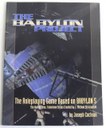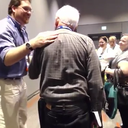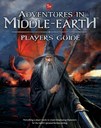Story #__: ____________________. A series of anecdotal postings sharing observations, comments, and other relevant experiences, about the effects of role-playing gaming...
All Blogs Find
Story #__: ____________________. A series of anecdotal postings sharing observations, comments, and other relevant experiences, about the effects of role-playing gaming...

This is the week we are providing drumming, tabletop, and live-action role-playing gaming services to the Muscular Dystrophy Association's summer camp. We just finished the first day's services, and will be providing the second day tomorrow. Here is a quick status update...

Here is information, photos, and links to some of the RPG Research volunteers at this year's 13th annual Tolkien Moot convention...
The Level 4 Game Master will run regular sessions with various people, at various locations. The GM IV is also the master trainer of all other GMs, and the senior level team leader. The GM IV provides advocacy, public speaking, training for players, game masters, educators, and therapists for Role-playing games. Volunteer-level free training begins immediately.

Thanks to the kind support of Patreon supporters like you, we have just crossed the threshold for goal #3!
A senior level position. The volunteer Game Master II (GM) provides role-playing game, and optional music, services to people with specific needs, and provide RPG training for entry-level Game Masters to those wishing to learn similar skills. Volunteer-level free training begins immediately.
An entry level position. Help organize, manage, and facilitate RPG and related events using role-playing games, drum circles, and other recreational activities at various locations, conventions, and other events. Volunteer-level free training begins immediately.
This is an antry-to-mid-level volunteer position. The level 1 player archetype is responsible for filling the role of various role-playing gamer "types". The Level 2 Player Archetype, for Therapeutic Settings, is a staff member that has been trained to respectfully and professionally fulfil this role in therapeutic settings. The participant takes on various Player Archetype roles to help train Game Master Therapists to learn how to address such situations more effectively. Therapeutic player archetype examples include: Autism spectrum, MD, CP, brain injury, etc. This is an approach similar to roles played in First Aid, ICU, Search & Rescue, talk therapy, and similar training programs. This is an excellent means of gaining experience toward other RPG professional positions.
This is an entry-to-mid-level volunteer position. The player archetype is responsible for filling the role of various role-playing gamer "types" in education settings. The participant takes on various Player Archetype roles to help train Game Master Educators to learn how to address such situations more effectively. Types include: disruptive student, distractable student, zoned-out student, argumentative student, student with various LDs, etc.
A review

Here is an interesting article detailing some of the Choose Your Own Adventure (CYOA) structures, with some interesting insights and commentary summing up a few of the examples.

UPDATE: JULY 2017 WIZARDS OF THE COAST PROVIDED US WITH A LICENSE! - After years of trying to get any kind of response, the only one we could get for using D&D publicly, was "No" to any use by our company, RPG Therapeutics, or The RPG Research Project, or The Wheelchair Friendly RPG Trailer, and all of our community endeavors, including charity, special needs populations, brain injury recovery, veterans, Autism Spectrum, etc. Hopefully this is just a Tier 1 Support issue. But we just can't get a hold of a human being to speak to. Here is what has happened far...
While it does appear to be true about game system differences "in the wild" having a notable impact on play style, arguably the setting and Game Master may have a much greater impact than the RPG system.
The Wheelchair Friendly now has the ramp extensions to accommodate electric wheelchairs and scooters. And actually this version also includes handrails for those that can walk but need some extra support.

A great question on the Facebook RPG Connection group page: "All right dungeon Masters listen up let us know what you do to prepare for a game and how long does it usually take you." Here is my lengthy response for a wide range of variables...

As summarized in Babylon 5, and applicable to RPG character development, and player goals...
RPG Therapeutics LLC, RPG Research, now on the third tour with the Wheelchair Friendly RPG Trailer! See the map for tour route. Drop on by and say hi!

UPDATE: UNFORTUNATELY DUE TO A CLERICAL OR OTHER ERROR, THEY ARE NOT INCLUDING MY PRESENTATION IN THE SCHEDULE, SO IT TURNS OUT I WILL _NOT_ BE SPEAKING AT THIS YEAR'S WSTRA. - - - May 6th is the 17th annual conference for the Washington State Therapeutic Recreation Association. I will be presenting on Using Role-Playing Games to Achieve Therapeutic & Educational Goals: The First Steps, and showing the 50-100+ professionals the Wheelchair Friendly RPG Trailer.
"GameHearts was founded to promote sobriety by providing alternative gaming activities. "
Here is a summary of many observations I have made through various experiments in trying to optimize the RPG experience. These are based both on observations (most of which include thousands of hours of recorded RPG sessions), verbal feedback, and formal assessment forms from participants. Scores of variables were taken into consideration and repeatedly tweaked to try to find some level of causal changes, but at this stage are probably only at best correlative, in the enjoyment levels of participants. There are plenty of potential confounds here, and so every statement should have that taken into consideration that these should be further researched with more rigorous techniques. However, implementation of these observations does seem to have lead to consistently higher assessment & observation scores. I hope others find this useful for trying to optimize your own RPG setting. This was a non-therapeutic and non-educational setting, it was only for standard leisure activity of tabletop role-playing games.

Just a quick status update about today's activities related to the RPG Research Project's recent activities...
A fun little trailer the show creator put together for the weekly Internet show in which I have a supporting role as one of the adventurers.
Archivist Janine Winfree created a list of open-source, free, or low-cost cataloging programs for the RPG Museum. She provides a brief summary of each of these systems as well as her personal recommendations for RPG Museum.
Where this will be accepted is still unclear, but it is something I came across during my time with Play Therapy, that seems very appropriate for Recreation Therapy / Therapeutic Recreation (RT / TR) and possibly some forms of RPG Therapy. It might only be applicable for mental health clients. I ran it by several professors, and facilities managers, and they were intrigued, but unable to provide further clarification. I welcome additional feedback from others.

The RPG Trailer will be on a second tour February 2nd through 4th, from Spokane, Washington, to Portland, Oregon (and back).

It is increasingly looking likely that this will, for those participating in Fantasy TRPG, become the standard system platform and setting for RPG Research, RPG Therapeutics, etc. To have a more consistent baseline to compare between groups.

Just finished recording episode 6 of The RPG Research Podcast w/ John Welker & Hawke Robinson. Includes video this time.
Things are really ramping up. Here is what the schedule for the year is looking like so far...
Document Actions
